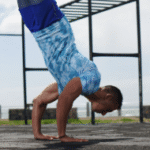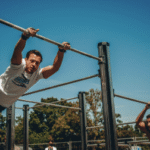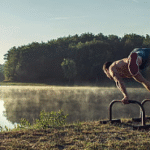What to Look For in a Personal Calisthenics Trainer: Top 7 Qualities
Okay, when you’re looking to invest your time, money, and effort into working with a personal calisthenics trainer in the USA, identifying the right qualities is paramount. Beyond just availability or price, certain attributes separate an adequate trainer from an exceptional one who can truly help you unlock your potential safely and effectively.
Based on the demands of calisthenics training as of today, Monday, April 28, 2025, here are the top 7 qualities to look for in a personal calisthenics trainer:
- **Deep Calisthenics Knowledge & Specialization:**
* **What it means:** They possess a thorough understanding of biomechanics, anatomy, physiology, and progressive overload principles *as they specifically apply to bodyweight training*. They understand the unique demands of calisthenics skills (leverage, tension, balance, mobility) beyond general fitness knowledge. They should clearly *specialize* in calisthenics, not just list it as one of many services.
* **Why it’s crucial:** Calisthenics progressions (especially for advanced skills like handstands, levers, planches) are nuanced and differ significantly from traditional weightlifting. A specialist understands the intricate steps, common sticking points, and specific strength/mobility prerequisites.
* **How to assess:** Ask about their specific training/education in calisthenics beyond basic PT certs (workshops, mentorships, years of dedicated practice/coaching). Review their content (website, social media) – does it demonstrate deep understanding?
- **Proven Experience & Results (Relevant to You):**
* **What it means:** They have a demonstrable track record of successfully coaching clients, particularly those with goals and starting points similar to yours. This includes practical, hands-on experience applying their knowledge.
* **Why it’s crucial:** Theoretical knowledge isn’t enough. Experience translates theory into practice, allows them to anticipate challenges, and proves they can actually help people achieve results. Relevance ensures they know how to handle your specific situation (beginner vs. advanced, specific skill goal, injury history).
* **How to assess:** Ask directly about their experience with your specific goals/level. Request (anonymized) case studies, testimonials, or references. Check online reviews (Google, Yelp) for patterns of client success and satisfaction.
- **Excellent Communication & Cueing Ability:**
* **What it means:** They can explain complex movements and concepts clearly and concisely. They utilize effective verbal, visual, and sometimes tactile cues to help you understand *how* a movement should feel and execute it correctly. They are also active listeners, understanding your feedback and concerns.
* **Why it’s crucial:** Calisthenics often relies on subtle internal feelings and precise body positioning. Effective cues bridge the gap between instruction and execution, accelerating learning and improving technique significantly. Clear communication ensures you understand the “why” behind your training.
* **How to assess:** Pay close attention during the consultation. Did their explanations make sense? Did they listen well? If possible, observe them coaching (videos online) or do a trial session to experience their cueing firsthand.
- **Keen Eye for Technique & Detail:**
* **What it means:** They have a highly developed ability to observe movement and spot even minor deviations from optimal form. They pay attention to details like joint angles, muscle activation patterns, and movement timing.
* **Why it’s crucial:** In calisthenics, small form errors can drastically reduce effectiveness, stall progress, or increase injury risk. A coach with a good eye catches these errors immediately and provides precise corrections, ensuring safe and efficient training.
* **How to assess:** Ask how they provide feedback on form during sessions. Watch videos of them or their clients training – do they emphasize technical precision? A trial session is the best test.
- **Effective Programming & Adaptability:**
* **What it means:** They can design structured, progressive training programs tailored to your individual goals, level, and recovery capacity. Importantly, they can also *adapt* that program intelligently based on your progress, feedback, and day-to-day readiness, rather than rigidly sticking to a pre-written plan.
* **Why it’s crucial:** A static program rarely works long-term. Effective programming ensures consistent challenge and progress, while adaptability manages fatigue, prevents overtraining, and allows for adjustments around life’s variables (stress, sleep, minor aches), keeping you on track.
* **How to assess:** Ask about their programming philosophy. How do they structure plans? How often do they adjust them and based on what factors? Do they incorporate principles like periodization?
- **Strong Emphasis on Safety & Injury Prevention:**
* **What it means:** They prioritize your long-term health and well-being. This involves insisting on proper form, managing training loads appropriately, understanding risk factors for common calisthenics injuries (wrists, shoulders, elbows), and potentially incorporating prehab/mobility work.
* **Why it’s crucial:** Calisthenics, especially advanced skills, can place significant stress on the body. A safety-conscious coach helps you build strength and skill sustainably without unnecessary setbacks, ensuring longevity in your training.
* **How to assess:** Ask about their approach to injury prevention. How do they handle clients with previous injuries? Do they perform thorough assessments? Do they seem cautious and knowledgeable about risk management? Do they have liability insurance?
- **Motivational & Interpersonal Skills (Good “Fit”):**
* **What it means:** They know how to motivate you effectively based on your personality (encouragement, accountability, data, challenges). They build rapport, foster trust, and create a positive, supportive training environment. You should feel comfortable and respected.
* **Why it’s crucial:** A good coach-client relationship based on trust and understanding enhances motivation, adherence, and overall enjoyment of the training process. If you don’t “click” with your coach, you’re less likely to succeed long-term.
* **How to assess:** This is largely felt during the consultation and trial session. Do you feel heard? Do you feel motivated by their style? Do you trust their judgment? Does your personality mesh well with theirs?
Finding a trainer who embodies these seven qualities provides a strong foundation for a successful, safe, and rewarding journey in mastering calisthenics. Prioritize these factors during your search and vetting process to make the best investment in your strength and skill.

What to Look For in a Personal Calisthenics Trainer: Top 7 Qualities
Route
Calisthenics Gym Houston Functional Bodyweight Training
Secondary phone: (346) 483-3195
Email: info@calisthenicsclubhouston.com
URL: https://calisthenicsclubhouston.com/
Monday 6:00 AM - 7:00 PM Tuesday 6:00 AM - 7:00 PM Wednesday 6:00 AM - 7:00 PM Thursday 6:00 AM - 7:00 PM Friday 12:00 PM - 6:30 PM Saturday 9:45 AM - 12:00 PM Sunday 3:00 PM - 5:00 PM





